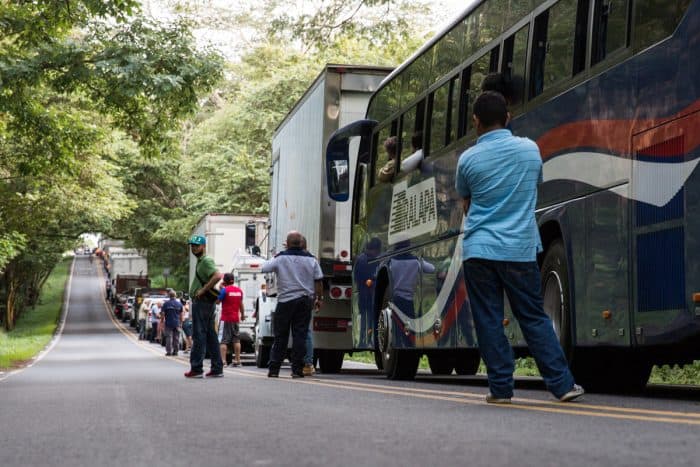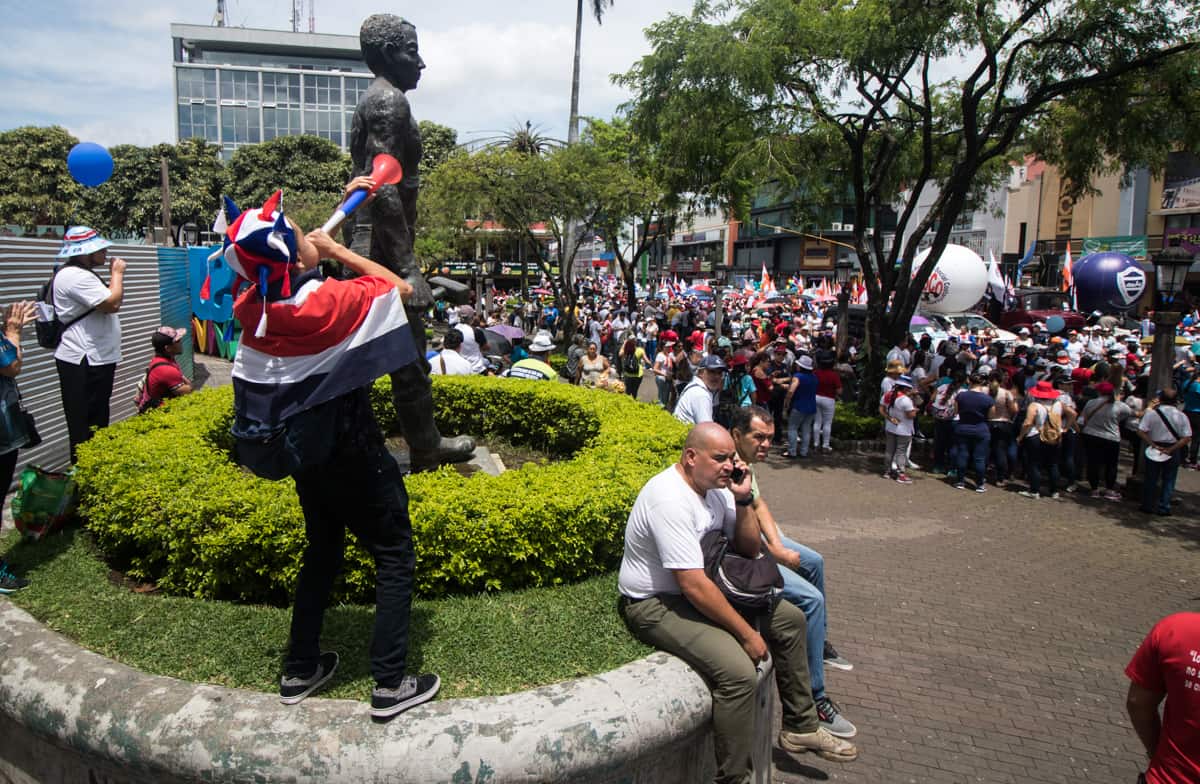President Carlos Alvarado told NC Once news that the government is set to talk with unions and announced that the Minister of Labor, Steven Núñez, will appear before the Episcopal Conference on Tuesday to establish a dialogue.
“This is a time for dialogue and resolution, not discord or dissent,” Alvarado said.
The unions stated their willingness to talk and accepted the Catholic bishops’ offer to mediate the talks. They were unwilling to suspend the strike that began on Sept. 10, according to an official statement made by the Labor Union of the Costa Rican Social Security Administration (UNDECA), one of the most predominant public-sector unions protesting the tax-reform.
“Union leaders met with José Rafael Quirós, Archbishop of San Jose, and other Catholic priests in an introductory meeting to express their willingness to reach an agreement” and end the strike, the UNDECA statement said.
The parties’ mutual willingness to reach an agreement is the first indication that there could be an end to the strike. Unions had initially rejected President Alvarado’s efforts to establish an open dialogue and refused the offer to engage in mediation made by the Catholic Church and the five presidents of the public universities.
Tax Reform
The unions went on strike against a tax-reform bill that seeks to address a growing fiscal deficit (6.2 percent of the country’s gross domestic product in 2017) that, according to the Central Bank, could reach 7.2 percent in 2018 unless some kind of tax reform is passed.
The unions argue that the tax-reform bill unnecessarily burdens the underprivileged. President Alvarado disagrees and claims that 80 percent of the government revenue collected through this new proposal will come from the top 20 percent of earners in Costa Rica.
The president of the Legislative Assembly, Carolina Hidalgo, presided over a meeting on Monday where lawmakers discussed the tax-reform bill and said she was confident that the bill will pass before the end of September.
One of the most contentious proposals at the center of the tax reform is the replacement of the current 13 percent sales tax for a value-added tax of the same value. This new value-added tax, however, would tax services.
The tax reform “is unpopular and controversial, but necessary,” said President Alvarado on Saturday during the Independence Day celebrations held in the city of Cartago.
General strike enters second week; Legislative Assembly starts discussing tax-reform
Effects, Impact & Complaints
Even though most public services have remained unaffected, the strike has had a significant impact on schools, universities and medical services provided by public hospitals across the country.
Protesters have blocked highways all over the country, hindering the distribution of fuel and causing heavy traffic near some of the country’s top tourist destinations.

On Monday, riot police used tear gas to disperse a crowd of protesters who blocked the entrance to the docks in Moín, Costa Rica’s most important trade route.
“In light of the significant impact the protests have had over foreign trade, which is the backbone of our economy, we have decided to intervene and clear the entrance to the port,” the Minister of National Security, Michael Soto, said on a video.
On Sunday night, the government accused protesters of “sabotaging” Costa Rica’s fuel pipeline system, causing a spillage of 1,500 gallons (more than 5,600 liters) of diesel in a heavily transited road in Puntarenas.
The pipeline was drilled “in such a way that the flow would fall on the highway, this was premeditated, it is a sabotage to the poliduct,” Alejandro Muñoz, president of the state-owned Costa Rican oil refinery RECOPE, told a press conference.
“The government has already condemned us without investigating the facts,” criticized Albino Vargas, the country’s main union leader.
Meanwhile, some areas in San José began to notice the lack of fuel due to blockages in the plants of the state oil company, while hotel owners in the northwestern province of Guanacaste reported heavy losses.
“The government must enforce the law, lift the blockades, which in themselves are illegal, and in that way guarantee the free transit of citizens and thousands of tourists who have seen their plans of enjoying the wonders Costa Rica affected,” said the Costa Rican Chamber of Hotels in a statement.
Hotel owners also complained about numerous cancellations and a decrease of tourists because of the strike.






